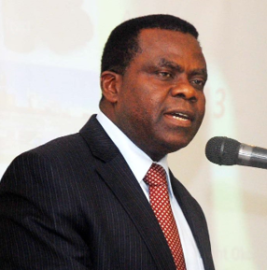
The World Trade Organisation (WTO) Sherpa, Dr Bright Okogu, has challenged African nations to take decisive steps in transforming their economic landscape by creating robust investment environments and processing raw materials domestically.
“Africa needs to take charge of its own destiny,” Okogu said on Friday.
Traditional development aid, the Sherpa said, is rapidly diminishing, making it imperative for African countries to attract quality investments.
“There’s no running away from it. The aid that people used to depend on is no longer available. It’s been very clear that aid is drying up and with all the changes in the world, people are spending more money on defence in their own countries. So you can’t rely on it, which makes it necessary to ensure you can attract good investment to your country.”
Okogu spoke during the Group of 20 (G20) Sherpa meeting at the Sun City Resort in the North West province.
He highlighted key recommendations, including developing clear regulatory frameworks, removing bureaucratic obstacles, and investing in local processing capabilities.
Okogu said current intra-African trade remains low, hovering around 15%-16% when it should ideally reach 30%-40%.
He noted some hurdles including limited infrastructure, similar raw material production, and complex transportation networks that often force African countries to trade through European intermediaries.
Okogu pointed out the anomalies of current trade routes, including instances where African airlines must fly indirect routes through other continents to connect with neighboring countries.
“Countries must invest in converting raw materials into finished products. Take cocoa, for example. Instead of exporting raw beans, African nations should be producing chocolate and cosmetic products, thereby capturing more economic value.”
Okogu stated that the WTO is supporting reform efforts, recognising that meaningful change requires dismantling long-standing structural barriers.
The WTO, the world’s largest international economic organisation with 166 members representing over 98% of global trade and global gross domestic product (GDP), has since outlined key recommendations.
These, according to Okogu, involve investing in local processing capabilities, developing streamlined regulatory frameworks, creating attractive investment environments, and improving continental transportation infrastructure.
“Critical minerals like lithium represent enormous potential, but countries must negotiate investment terms strategically, ensuring local job creation and value addition.”
He also took the time to encourage dialogue to resolve trade tensions. – SAnews.gov.za


